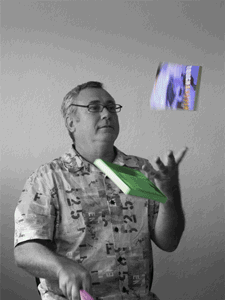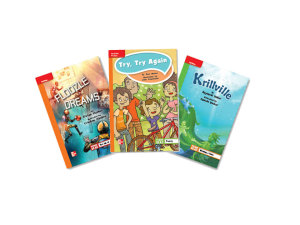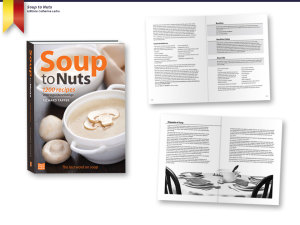Have you seen this? It was really nice of Booksellers and Beatties Book Blog to feature us.
The role of the book designer in publishing
An interview with Kim Dovey and Dexter Fry, provided by www.smartworkcreative.co.nz
What is your background in book design?
Kim (right): I started my career with an apprenticeship in typography at the Christchurch Press and have been designing books for 20 years – the same age as my oldest boy and I thought book design was an easier way of making a living compared with all the toing and froing of commercial graphic design. Books were bigger and I could manage them better at home while bringing up my two boys. If only I had realized then that they also pay way less. But it’s too late. I’m hooked now.
As the boys grew, so did the business with 6 staff working from our home studio in Christchurch before the earthquakes.
Two years ago you moved your studio to Auckland – why?
Kim: After the September quake we lost power for 5 days, the first of many losses. When the February quake hit we were already looking at moving into larger premises and I was booked to visit sites that very afternoon with the real estate agent. All that went out the window and slowly staff departed and moved away.
The total days for not being able to offer a service now topped 11 and we really felt we needed to look after our Auckland publishers. We found a great space in Birkenhead that had similar rental costs to the post-earthquake costs in Christchurch, and started working towards the idea of opening a second studio. The two designers we had left in Christchurch were very keen to move, and in a very short time we had relocated our production to Auckland while I remained in Christchurch.
Thanks to Dexter Fry (our wonderful studio manager up there), this has been a successful move.
How do you see the role of book design in the success of a book?
Kim: Most readers don’t understand the role book design plays in a book. It’s the invisible part that makes a good book great. Can you imagine what a bookshop would look like if stories were presented as a bound manuscript? The book just wouldn’t be the complete special package that captures all your senses as it does now.
We work with the person who publishes the book. They usually have the content sorted and require us to turn it into the product that can be sold. These days that’s either a printed book or an ebook. We create the feeling you get when you first see a book cover, the feeling that makes you want to find out more, to explore it’s pages and to see if this is the title that makes you want to spend more time exploring its content.
 Dexter (right): When you browse in a bookshop the theory goes that if the cover and title make you pick up the book, you turn it over and read the back. That’s what makes you buy it or not. Our primary job is to make you pick it up!
Dexter (right): When you browse in a bookshop the theory goes that if the cover and title make you pick up the book, you turn it over and read the back. That’s what makes you buy it or not. Our primary job is to make you pick it up!
How do you work with book publishers, what is the process?
Kim: The publisher has the manuscript and images. They usually have an idea of how they want to pitch and market the title. Once the editing process is complete we are supplied with the manuscript and a brief. We use this brief to supply 3 design samples. These are then tweaked and pruned to come up with a final concept that is carried through the rest of the book. Proof 1 is a fully layed-out book that goes through a proof reading and correction process before being ready for finished art and sending off to the printer or digital upload.
Explain the difference between a physical book and an e-book design.
Kim: This depends on the type of e-book as just like physical books there are many different types.
Dexter: There is an obvious difference in that the cover HAS to work and be appealing at a very small size, so the cover design for an e-book has different challenges. But saying that, the cover and all aspects of e-book design are still important. And while there isn’t a back cover for an e-book that persuades you to buy, there are opportunities at the end of an e-book to keep the reader wanting more, and an easy way to click and buy more. So the marketing considerations at the end of an e-book are very important.
Which publishers do you work with in New Zealand and why?
Kim: Over the years we have worked with just about every NZ publisher, large and small. We let our books speak for themselves and we take everything we can get in the current environment!
‘Digital is growing up & has matured’ as reported from the Digital Book World Conference + Expo – readers of eBooks are getting more discerning with their reader experience. Tell us how you see this coming of age in the NZ market.
Kim: We see the future as bright and think that a reader deserves a well-designed book whether it is an e-book or a printed book. Currently a lot of e-books look like a word file manuscript with hyperlinks added. There’s no reader experience at all.
At the recent PANZ Excellent E-book seminar the feeling in the room was very positive towards digital books where e-books are no longer seen as a threat. The seminar confirmed for us that we are totally on the right track and are ready to produce well-designed e-books.
Designers are used for producing print books, then digital companies were used for producing e-books. Is this becoming a more seamless process and if so, how?
Kim: Along with the creation of e-books also come new tools to create them. Designers no longer need to be web developers to create basic websites, apps or digital content. We can now do this with the standard design software that we use everyday. Design and digital content have now come together and we have a lot more control. This goes further than the ebook too as we can also develop an app from existing artwork e.g. magazines, catalogues or a company profile.
Dexter: This is why we see a bright future, because as designers of a page, we are now able to see that page through to print and digital. And the digital page has so many exciting possibilities.
Self-publishing is now very widespread. What do you recommend to an author who wants to self-publish? What are the pitfalls? Advantages?
Kim: The basics of a good book haven’t changed. The first question I usually ask is how do you plan to distribute your book. This is still the top question for an e-book or a p-book. Unless you have a plan for getting your book in front of your buyer the rest doesn’t really matter.
Next we encourage everyone to have their book professionally edited. Then comes good design for both the internals and cover.
You almost need to start at the end of the process by looking at what the reader will buy. This is what a publisher does. It comes down to publicity and marketing and how much time a self-publishing author is prepared to put in to this.
How do you search for New Zealand generated e-book titles rather than the massive jungle of titles on international?
Kim: Good question. How do you? This is one of the barriers for NZ e-books at present. There are loads of reports that show how much kiwis like to read NZ content, but when it comes to e-book distribution, it’s still hard to find NZ content when you search in online bookstores. It will be interesting to see if the new Amazon Australia store helps with this.
Do you think ‘e-book Clubs’ will be something New Zealanders will engage with?
Kim: Interesting thought. As a reader I’d be keen to join.
There has been much discussion on the future of publishing in New Zealand and a lot of it is not terribly optimistic. What is your feeling/opinion on both the print and e-book publishing future here? – for small publishers?
Kim: We see the future as being really positive and exciting. I don’t know many families that do not have at least one e-reader in their household. Purchasing a title has never been easier.
There is currently a huge shift and realignment for publishers and booksellers business
models but once everyone gets their heads around NZ digital books and they become more accessible to the NZ readers, it’s really difficult not to see the NZ book trade really picking up again, with both print books and e-books supporting each other. It will just be a different market to what we have now. Here at Book Design, we are ready for it and are all set up and ready to go.
